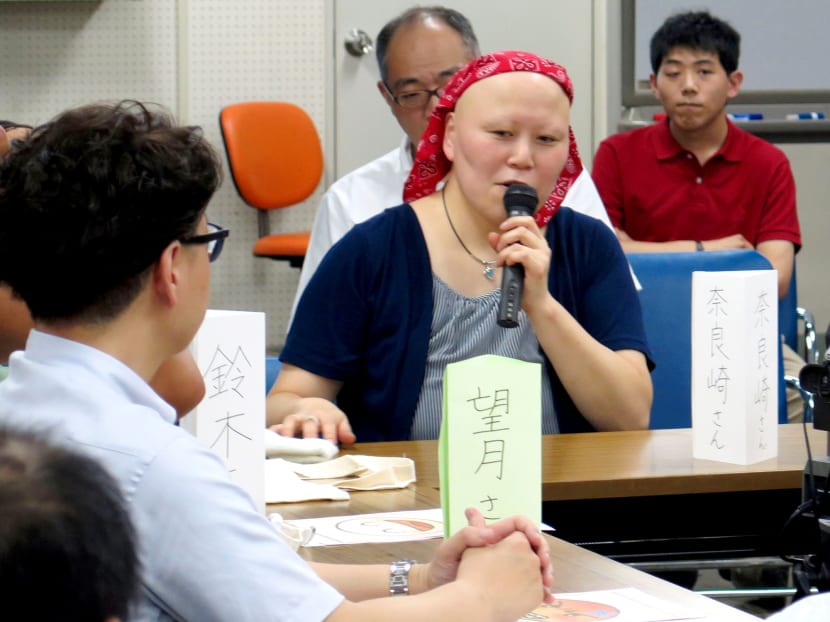Japan’s intellectually impaired go online with their own TV show
TOKYO — A group of Japanese with intellectual impairments have launched an Internet broadcasting station of their own to have their voices heard and offer people opportunities to learn more about those with disabilities.

Ms Mayumi Narazaki presiding over a support group meeting for intellectually disabled individuals in the Japanese city of Yokohama. To have their voices heard, another group of Japanese with intellectual impairments have launched an Internet broadcasting station of their own. Photo: Kyodo News
TOKYO — A group of Japanese with intellectual impairments have launched an Internet broadcasting station of their own to have their voices heard and offer people opportunities to learn more about those with disabilities.
Pansy Media, based in Higashiosaka, western Japan, broadcasts an online TV programme once a month, with many cast members and production staff having some form of intellectual impairment.
The 50-minute programme, which began in September last year, offers news and documentaries, as well as a feature called My History, in which a person talks about his or her personal background. Each time, a dozen people participate in shooting.
Pansy Media is being run with support from the city-based social welfare corporation Soshien that manages group homes and workshops.
The plan to set up the Internet broadcasting station, the first of its kind in Japan, dates back to 2001 when disabled people who used those facilities and staff members visited Sweden and saw their counterparts producing an information magazine and radio programmes.
Inspired by the activities, they started preparing to set up an Internet broadcast station in February last year, backed by the president of a video production company.
While they were rehearsing for a drama episode depicting abuse of residents at a care facility, a shocking incident occurred in July that year — 19 residents at a care home for people with intellectual impairments were killed by a former employee of the facility in a city near Tokyo.
Satoshi Uematsu, who has been indicted in the mass-killing in Sagamihara in Kanagawa Prefecture, told the police he wanted to “save” those with multiple disabilities and felt “no remorse” for what he did.
In the wake of the stabbing rampage, the members of the broadcast station added these two lines — “We didn’t choose to have intellectual disabilities” and “Don’t we deserve to live?” — to the script.
Mr Yoshinori Umehara, 42, a producer with cerebral palsy, said: “Media often feature the voices of parents or supporters, but not so much of the people with intellectual disabilities themselves.”
Pansy Media produced another programme featuring the Sagamihara stabbings this month.
Ms Yoshimi Hayashi, a 67-year-old head of Soshien, said she was surprised by how the cast changed after making appearances in the online programme.
They started to speak up positively as if they were letting out feelings that had been kept inside, Ms Hayashi said. “It brought awareness to facility staff too, like, ‘I didn’t know you were thinking like that’.”
In Kanagawa, Ms Mayumi Narazaki, who has an intellectual disability, also established a new group with other fellows.
“Everybody wants to talk (about the Sagamihara incident) but there has been no place for doing so,” said the 39-year-old. “If more people come to know that we also laugh or get angry (despite disabilities), maybe we can abolish discrimination.”
Professor Akira Otsuka, who studies decision-making processes for people with intellectual disabilities, said that while there have been some activities led by such people within organisations for the disabled and progressive facilities, home-care staff and parents tend to make decisions for them.
“What is important is not to induce these people into a certain direction, but for supporters to give them information in a respectful manner so that they can express their opinions freely,” added Prof Otsuka, who is with the Sophia University in Tokyo. KYODO NEWS






